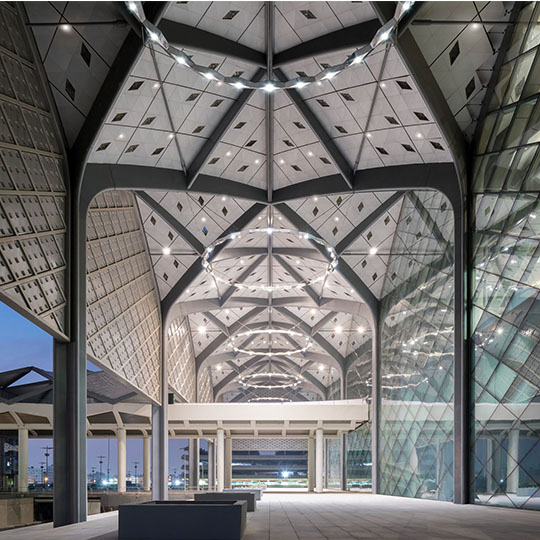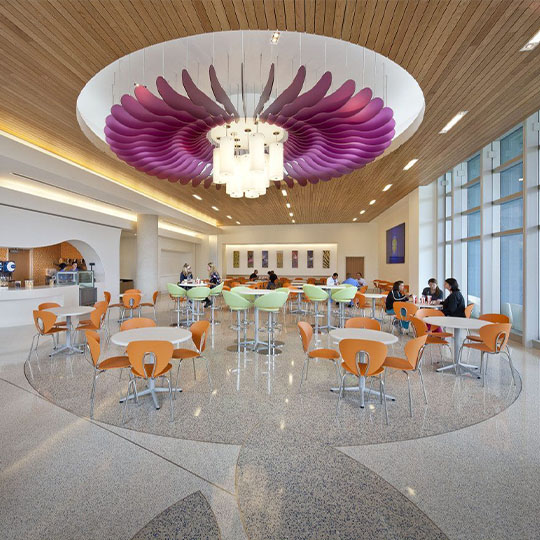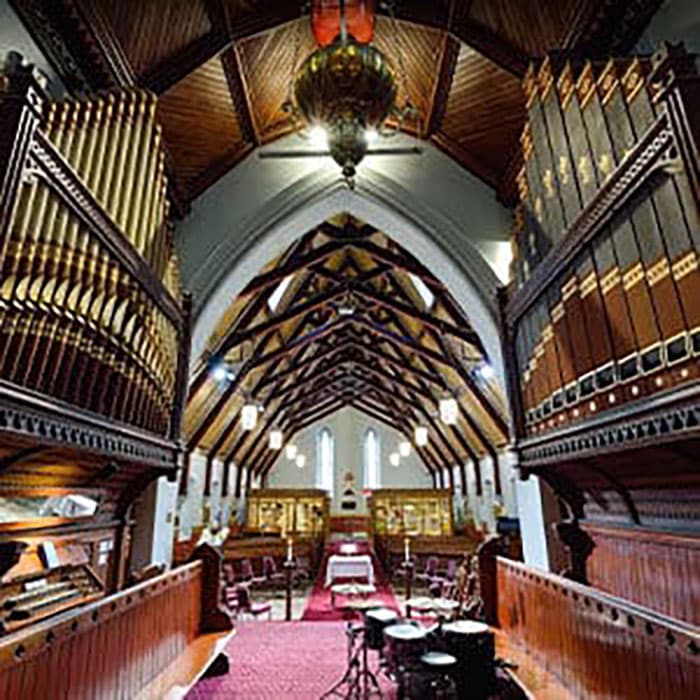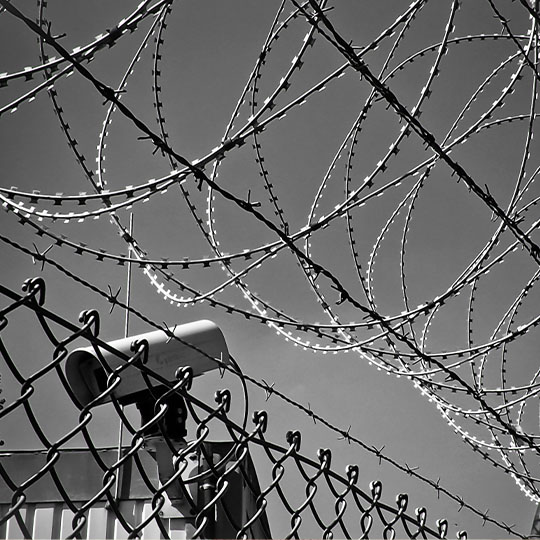Case Study
Mecca Central Railway Station
Project Overview
Location
Mecca, Saudi Arabia
Building
Mecca Central Railway Station
Aeroseal Contractors
Advanced World Trading (AWT)
Contract Engineer
Dar Al-Handasah
Goal
Clean, disinfect, and seal ducts to reduce duct leakage while improving IAQ, as well as airflow and ventilation – reducing energy costs and increasing passenger comfort throughout the facility.
Before Aeroseal
71,957 CFM total leakage (across 10 different ductwork segments)
After Aeroseal
1,127 CFM total leakage
Results
98.25% average leak reduction for each segment
Duct Sealing Helps High-Speed Railway Station Handle Extreme Climate
Aeroseal Solves IAQ Issues While Saving Energy & Ensuring Comfort
The Haramain High-Speed Rail System in Saudi Arabia is part of a cross-country rail expansion. It reaches speeds up to 300 kilometers (186 miles) per hour to cut the four-hour, 450-kilometer (280-mile) trip from Mecca to Media in half.
Designed for High Speeds and Low Temperatures
Mecca Central Station is one of five stations in the system. It is designed to handle the maximum heat rate in Saudi Arabia — outdoor temperatures up to 50°C (122°F).
Maintaining a low ambient temperature in its public areas is critical so they are environmentally controlled to enhance comfort. This requires a straightforward, but massive, HVAC system, with eight air handling units and long segments of ductwork with multiple branches spanning four floors.
Station construction was managed by the Saudi Binladin Group (SBG) a multinational conglomerate focused on the construction, industrial, and power industries. Dar Al-Handash handled contract engineering duties for the project. Dar Al-Handasah is an international consulting company active in engineering, architecture, planning, environmental consulting, project and construction management, and facilities management.
Despite a tight schedule, we handed off the HVAC system early, before other building systems. AWT and Aeroseal duct sealing were critical to our success.
Mohammad Boshnack
Mechanical Engineer & Inspector
- Dar Al-Handasah
With multiple phases of construction and some project delays, the facility’s ductwork was installed three years before it was put into operation. When the HVAC contractors conducted pressurization testing to ensure the system would pass final inspection, it was clear there were some issues.
“We were unable to hand the building over to its owners,” said Mohammad Boshnack, a Dar Al-Handasah Mechanical Engineer & Inspector. “We needed a team that could identify the extent of the problem and bring the system up to code as quickly as possible.”
Robotic Inspection Identifies Leaks, IAQ Issues
The HVAC contractors reached out to Advanced World Trading (AWT) to find a solution. AWT is the exclusive provider of Aeroseal in Saudi Arabia and specializes in indoor air quality (IAQ) management and infection prevention.
“With more than 500 meters (1,600 feet) of ductwork just in the main public area, we knew a thorough, robotic inspection was critical,” said Fadi Shoura, AWT’s Executive Director. “This identified several mismatched joints due to improper duct installation as well as leaks in 10 different segments of supply ductwork.”
The significant leakage equates to a total of 71,957 CFM lost every minute. It also allowed for excessive dust and mold accumulation. To eliminate these issues, AWT knew they needed to clean and disinfect the ducts before sealing them.
And after studying the mechanical plans, the team allocated more time for blocking and unblocking due to the unusual sizes of the building’s vents. But regardless of project irregularities, the team’s goal was always the same – make sure each segment of ductwork meets ASHRAE and SMACNA leakage standards.
Aeroseal — a Non-Invasive, Safe Solution
Now clean and disinfected, the duct system was ready for Aeroseal duct sealing. This proven technology injects a fog of aerosolized sealant particles into pressurized ductwork to seal air leaks from the inside. Sealant particles accumulate only where the leaks are located, gradually closing them. This ensured the station’s inaccessible ductwork was sealed without having to open walls in the building.
The Aeroseal sealant easily met the project’s rigorous safety standards, including having a high flash point to meet the demands of Saudi Arabia’s climate. Aeroseal’s water-based sealant is proven safe and non-toxic, is UL Listed and LEED certified.
The Aeroseal system software measures and records airflow and leakage throughout the process. Once each segment of ductwork reaches its target goal, the software verifies and records the results. A certificate showing leakage before and after the process is issued for use in the inspection. Evolution Engineering Services (EES ), a testing, adjusting, and balancing company, then validated the work.

Results
Project Ensures Clean, Healthy Air
AWT reduced leakage by 98.2%. this translates into an annual energy savings of up to 424,987 SAR ($113,325 USD) based on Aeroseal estimates. And now the station’s HVAC system easily and efficiently provides clean, healthy air at a comfortable temperature throughout the station.
“Despite a tight schedule, we handed off the HVAC system early, before other building systems,” said Boshnack. “AWT and Aeroseal duct sealing were critical to our success.”
The Saudi Railway Organization (SRO) has also been pleased with the noticeable impact to comfort, IAQ and the energy savings. In fact, as needed, AWT will apply its comprehensive process to the Jeddah railway station if any issues arise. SRO will ensure duct leakage does not compromise IAQ, passenger comfort, or energy efficiency at any of the systems five stations.







